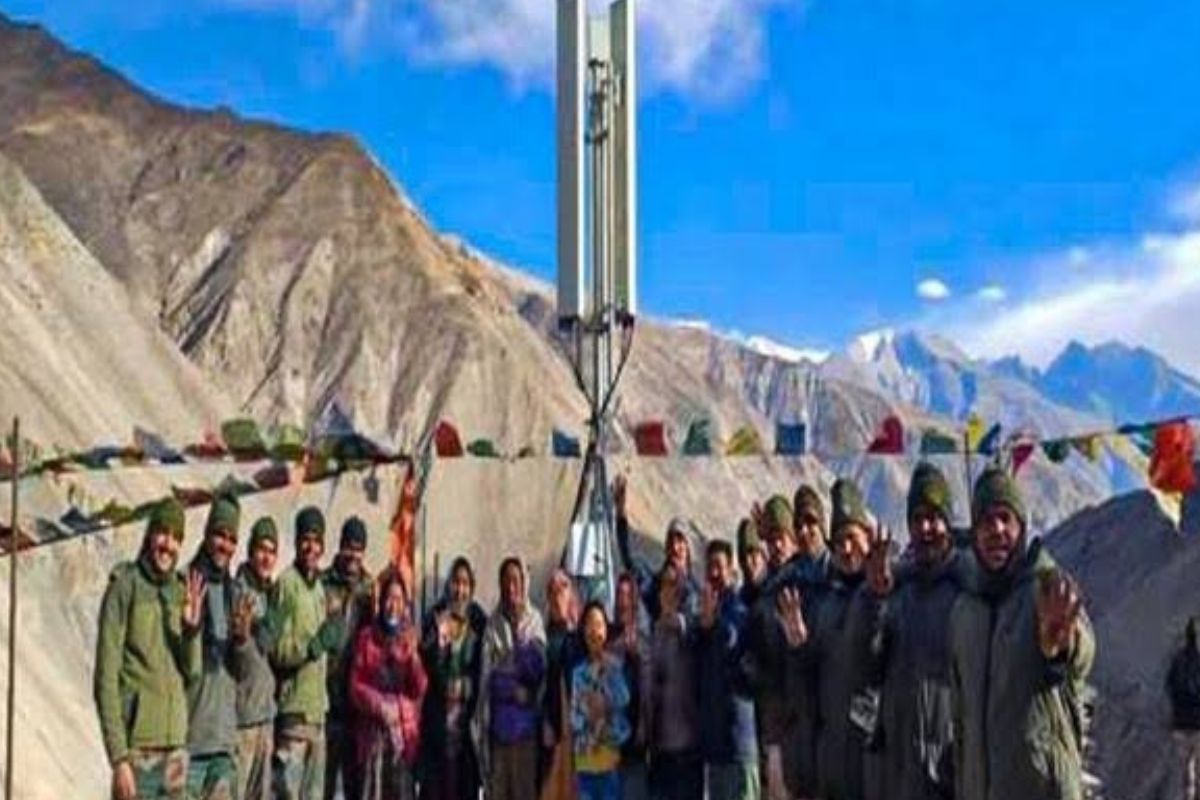Prime Minister Narendra Modi, on Thursday, spoke to the residents of Giu village in Spiti, Himachal Pradesh after the village got connected with mobile network for the first time earlier on the day.
Mr Modi had a good chat with the villagers, asking them how they managed their communications with other areas earlier. The villagers told him they did not believe they were getting mobile connectivity, till they really got it.
Advertisement
The villagers invited him to spend another Diwali with them. The prime minister said people would wonder why he goes up 15,000 feet high to visit their village.
Advertisement
The villagers told him earlier they had to travel eight kilometers to reach the nearest telephone. Mr Modi said it was hilly area and it could take a lot of their time in travelling. The villagers said it could really mean a whole day to do the exercise.
The prime minister said when his government came to office in 2014 there was no electricity in many villages. His government had provided electricity to all villages in the country. Now, he said the government was taking the mobile network to all villages. “I do not want any left village or area left out,” he said.
What they did in case there was an emergency, the PM said. He asked about the temperatures also. The villagers said the temperature was minus five these days, although it could go up a little during the day.
They said the area got heavy rains sometimes, and lot of soil and stones came down on agriculture land. In 2010, 17 hectares of land was buried under the debris. The prime minister said now the villagers can use mobile phones to seek help.
He asked about Dharchula. They said their village was in the Spiti block in the Lahaul-Kinnaur area.
Mr Modi said his government’s priority has been ease of living and now in its third term, his government will focus on quality of life, and this would benefit remote areas, poor people in the lowest rung of the society and middle classes.
He asked a teacher how mobiles could benefit his work. There are lots of things online. The teacher said the mobiles give latest information, concrete information and videos. Children have not seen these videos. With their help, children can be taught many things, he said.
The PM said he had worked in Lahaul-Spiti during his organizational work days and recalled his old contacts, and foods available those days.
“I am familiar with the difficult circumstances of living in your area. The Har ghar jal abhiyaan was undertaken in Lahaul Spiti. He said there is lot of scope for women’s handicrafts for which the government will support women’s self help groups. The products can have a good market.
The villagers thanked the PM. He said he had visited them earlier on Diwali. He said, “I never told anybody about it. I got a big welcome.” The villagers were happy and thanked him for linking their village with the rest of the world.
The PM said “sometimes a small step can lead to a big change. Today is one such day. Today’s development will push Digital India further. For the first time, mobile network has come to Giu.
Mr Modi said geographical conditions of the area were difficult for extending the mobile network. He said he learnt on one of his visits that many people did not know there what was a mobile phone. “There was no connectivity, when I learnt, I decided to work,” PM said.
What was the first reaction in the villagers when they heard about mobile connectivity, PM asked. They said people were highly excited; they did not believe it was happening. “You visited this place and things moved fast thereafter; the Army was helpful,” they said.
“Now, you can talk to your relations staying away,” the PM said. India has really cheap data, he said. Mr Modi said earlier governments treated the border villages as last villages but his government recognized them as the country’s first villages. The government had started a vibrant village programme also.
The villagers said, “Our village is part of that programme. This will help tourism.” They told Mr Modi “Come next Diwali also. You have come twice on Diwali earlier, come another Diwali,” they said.
Advertisement









